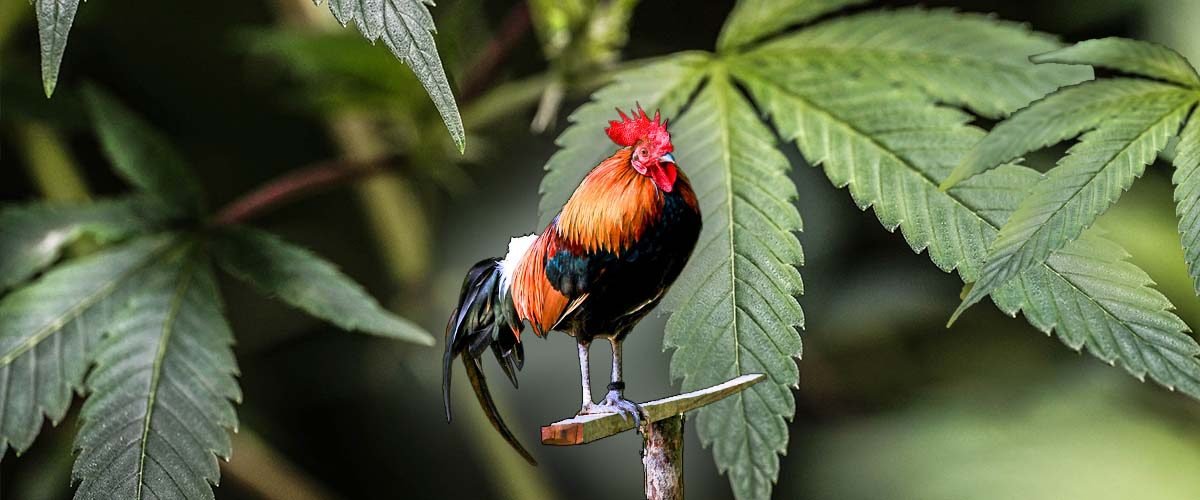Farmers in Lampang, Thailand say that replacing antibiotics with cannabinoids found in the cannabis plant has improved the quality of their chicken meat and eggs. After administering cannabis leaves to hens, scientists saw fewer occurrences of avian bronchitis and higher meat quality.

Sirin Chaemthet, president of Peth Lanna community enterprise, said that the experiment was conducted in conjunction with the Faculty of Agriculture at Chiang Mai University. Since January, researchers at a Peth Lanna organic farm in Lampang have been observing the response of 1,000 chickens to feed and water infused with cannabinoids, according to The Guardian.
How did the concept of substituting cannabis for antibiotics originate? Ong-ard Panyachatiraksa, a registered grower of medical cannabis who owns the farm in northern Thailand, pondered what to do with the surplus leaves he had accumulated. In an effort to cut down on waste, the farmer substituted cannabis for medication when his poultry were infected with avian bronchitis.
The therapeutic and culinary advantages of cannabis have long been acknowledged in Thai culture, said Chompunut Lumsangkul, an assistant professor at Chiang Mai University’s department of animal and aquatic sciences. Lumsangkul was the studies lead. “It is the local wisdom of Thai people to use cannabis [leaves] as a food additive,” Lumsangkul says.
Chompunut monitored the chickens to determine the effects of cannabis on their development, susceptibility to illness, the quality of their meat and eggs, and the presence of cannabinoids. The plant was administered to the animals at differing concentrations and in various formats; some were given cannabis-infused water, while others were fed cannabis-infused chow.
Chompunut said, “At the level of intensity we gave them, it wouldn’t get the chickens high.” No anomalous behavior was detected in the hens. The range of tetrahydrocannabinol (THC) concentrations in the medical marijuana leaves was between 0.2% to 0.4%.
Although the findings have not yet been published, Chompunut has detected encouraging indicators. According to Chumpunut, the findings are encouraging and imply that cannabis might help decrease farmers’ reliance on antibiotics. Upon taking cannabis, the hens reportedly acquired a stronger resistance to illness and were able to survive adverse climatic conditions.

The chicks fed cannabis will fetch a greater price at the farm’s restaurant, according to the farmer owner, Ong-ard. He said that chicken typically sells for 60 baht (€1.61) per kilogram, but his cannabinoid-fed chicken would be sold around 100-120 baht.
The head of the National Farmers Council, Prapat Panyachatrak, was reported as claiming that replacing antibiotics with cannabinoids would not only increase the economic value of chicken goods, but also assure customer safety. Antibiotic use in poultry raises concerns about its impact on human health, including rising rates of allergy and weakened immune systems.
On Thursday, Thailand became the first Asian nation to decriminalize cannabis.
Chompunut said that further research is required to see whether cannabis might replace antibiotics in poultry raising. For her next experiment, she plans to utilize stronger cannabinoid extracts and monitor the effect on sickness and mortality rates in chickens.



